“We need to have a deep historical awareness of the processes through which Indigenous peoples have been dispossessed of their rights through colonial processes” – These are the words of David Wilson, a historian from Strathclyde University (Researcher in Early Modern Maritime and Scottish History). He is one of the many researchers working collaboratively within the One Ocean Hub, in the intersection between transformative ocean governance, tangible and intangible heritage, customary law and constructively critical analyses of the Blue Economy in West and Southern Africa (Ghana, South Africa, Namibia) and the South Pacific (namely Solomon Islands and Fiji).
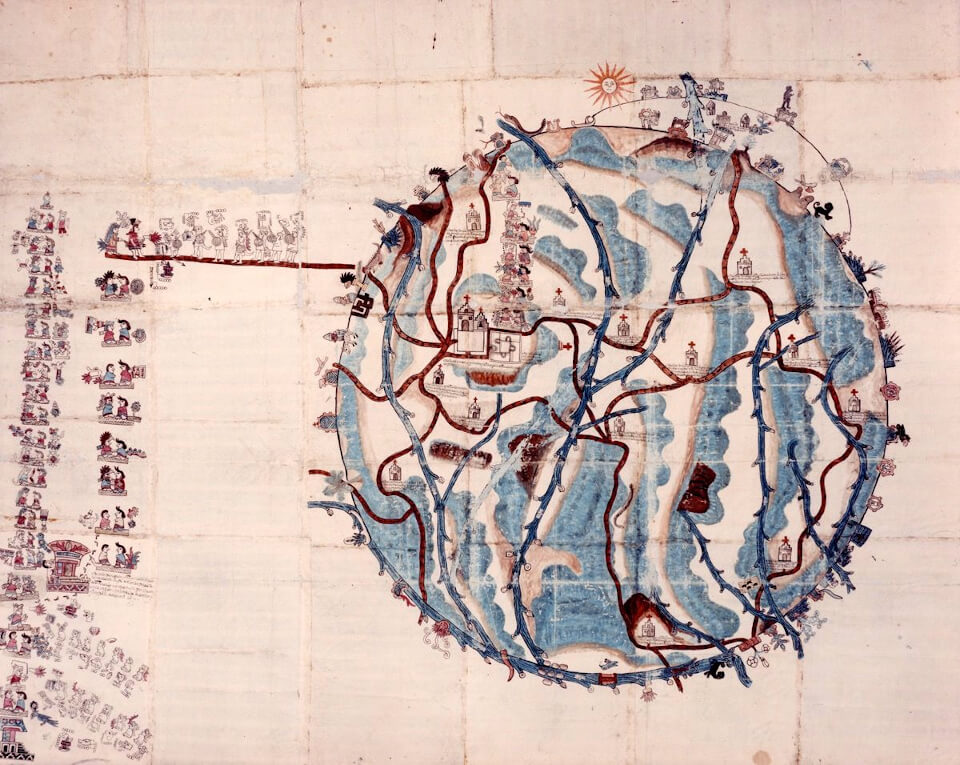
David’s work is primarily focusing on west Africa and supporting Ghanaian researchers in mapping historical insights that can help us understand how colonial legacies have impacted and led to the development of national (and international) laws of the Sea. David aims to outline the long and continued impact that this has on recovering or safeguarding recognised Indigenous rights to land, territory, and resources (terrestrial and marine). We are hoping to read some of the preliminary findings of this research in July- August of this year (2020). David is also working on a second article which will go further into tracking the Maritime History of Ghana, and revealing insights from the historiographies of coastal communities, seafaring, and marine power in pre-colonial and colonial Ghana, 1600-1957, which should be ready as a first draft by the end of this year.
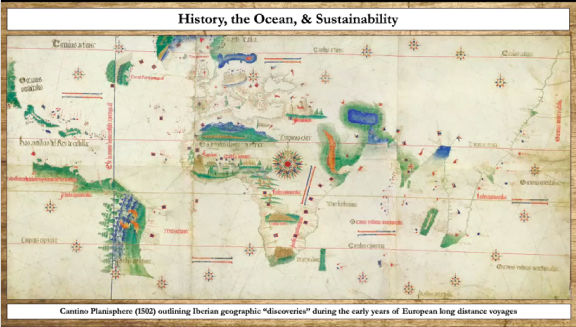
David’s work symbiotically relates to the work of Laura Major (Strathclyde University) and Bola Erinosho (University of Cape Coast) who are currently working on a research paper which offers a discussion of the historiography of Ghana, highlighting the maritime perspectives that underpin much of this work, even where the maritime world is not the focus. Their article aims to highlight the benefits of meaningfully engaging with these ocean-facing perspectives to better explore the history of Ghana during the eras of the slave trade, ‘legitimate commerce’, and formal colonisation.
Looking backwards in order to understand the present and advise the future is also emerging in the work of Rose Boswell in South Africa. As an anthropologist, she is building an ethnographic team and drafting a series of works exploring ocean cultures in South Africa. The emergent findings of this work may prove to resonate with the work coming from Laura, David and Bola’s archival work.
Historical tracking of how these systems of law have evolved is also being applied to understanding the critique of Blue Economy (BE), and how the BE narrative has emerged. The team at the University of Cape Town, in Environment and Geographical studies, led by Merle Sowman has two papers on the go. The first, a wider exploration into integrating social justice and sustainability principles into South Africa’s blue economy initiative, which is a collaborative effort between Merle, Wayne Rice, Philile Mbatha, Jackie Sunde and Rachel Wynberg. Merle and Jackie are also working on a second paper which takes a more micro case study approach and asks what would a just transition look like in context? This paper will examine what it takes to navigate the process of policy implementation in small-scale fisheries in South Africa.
Joining the efforts of unpacking the Blue Economy are Holly Niner and Sian Rees who are working on a paper that aims to develop a decision support tool and method that can assist decision-makers to enable the integration of ecological, economic and social metrics when considering the development of a Blue Economy in ABNJ. The work emerging in South Africa and Ghana, particularly at a case study level could offer valuable contributions to what metrics Holly and Sian should be exploring or refining.
Contextual profiles being built by Harrison Golo, Georgina Y. Oduro & John Windie Ansah at the University of Cape Coast will also play a valuable role in informing metrics for decision-making tools. Golo et al, are working on a paper entitled: “Culture, Tradition and Human Rights of Women in the Coastal Communities of Ghana”. This paper examines the current debates around the interface between culture and women’s right in Africa, and how most women on the continent are often left to choose between their rights or their culture. As Harrison explains:
“…although there are available publications concerning the role of women in the blue economy globally, there is less information relating to the effects of culture and tradition on women’s fundamental rights in terms of resource allocation and the fisheries management in Ghana’s coastal communities.”
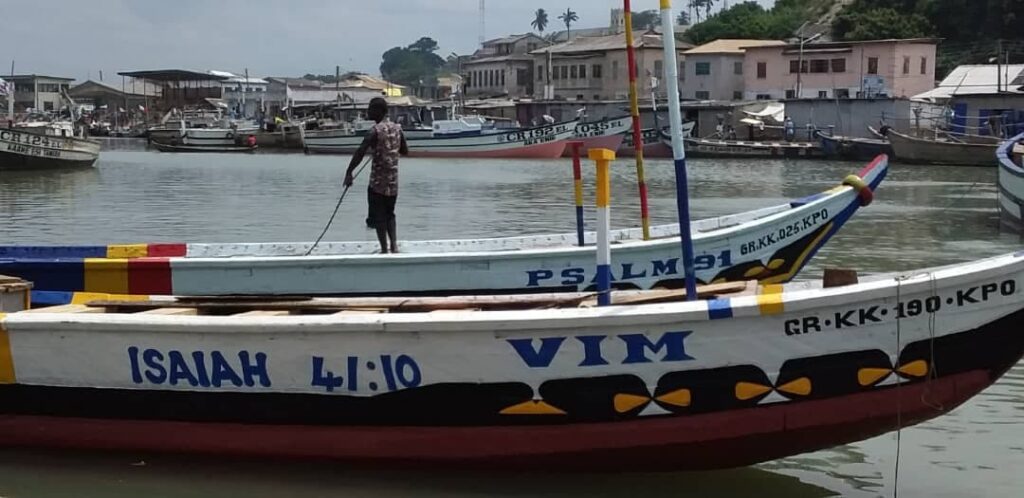
Based on this premise, their paper intends to research the relationship between culture and women’s human rights in the Ghanaian fisheries sector, with the main objective to analyse the effect of culture and tradition on women’s rights within the context of their scale of operations and resource distribution and management networks. The team will be conducting interviews in three fishing communities each in the Western, Central and Volta regions of Ghana to analyse how cultural and traditional practices impede or enhance women’s rights and make some recommendations towards the realization of rights and well-being for all actors within the country’s blue economy.
Georgina Y. Oduro is leading a second paper assisted by John Windie Ansah & Harrison Golo, which explores Children in the Artisanal Fishing Sector in Ghana: A case of child labour or occupational inheritance? As Georgina (Gina) elaborates:
“Child labour is an issue that has globally attracted the interest of researchers, academics, development agencies and NGO workers. There is a plethora of literature on child labour. Yet, the phenomenon has mostly been discussed from mundane perspective as a form of abuse and exploitation of children.”
Gina and her team are asking if that is always the case? Are there no benefits associated with children’s involvement in their parents’ work? Drawing on the voices of people living in selected Ghanaian coastal communities, this paper attempts to deconstruct and interrogate the concept of child labour. They will explore whether children or young people’s involvement in artisanal fishing is a form of occupational socialization and career inheritance. Their paper aims to further examine the meanings that the fishing communities along the sea coast of Ghana attach to child labour and the extent to which their interpretation of the phenomenon influences their obligations towards the health and safety of children.
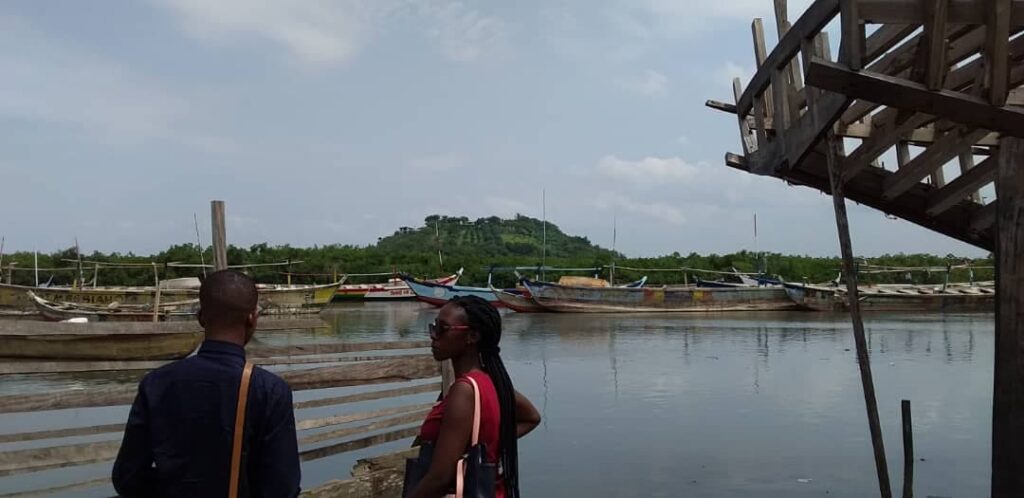
Along with these two detailed case studies John Windie Ansah is leading a paper with Georgina & Harrison which explores the Sociological Issues in Ocean Governance in Ghana: A focus on beliefs, norms, customary laws and social change. This work has deep resonance with the work of David, Laura and Bola at a contextual level in the country, but also could influence the work of other African Scholars in the Hub and indeed scholars in the South Pacific. Their paper contributes to the growing research interest among academics in marine sociology, as John explains: “… especially at a time when the debate between environmental constructivism and environmental realism seems at loggerheads”. Their paper analyses traditional customary laws and practices, and how these work to restore and maintain ocean health and how these have been sustained or disrupted by changes in the social structure of Ghana. Their work aims to provide insights into the role of norms, customary laws, practices and belief systems, and their interactions with social changes to promote or derail the capacity of the ocean to sustain its social and economic roles.
Another proposed paper from the UCC team will examine this emergent customary law data and the implication these findings have for contemporary marine governance in Ghana. As Harrison explains:
“Although the international institutions have provided guidance on governance of marine and coastal resources and urged states to recognise customary systems of natural resource tenure; research on the implications of customary law for fisheries governance in the face of current state of fishery interventions in Ghana is still under-researched or undocumented.”
Using a qualitative research approach, they aim to explore the nature, distinctiveness, strengths and weaknesses of customary law in relation to marine governance practices by the various ethnic groups or communities along the western and eastern coastal belt of Ghana and analyse its effects on marine sustainable livelihoods. They will examine this in more detail through a case study of Closed Fishing Season in Ghana: Vulnerabilities, Adaptations and Alternative Livelihoods. As Gina, John and Harrison explain:
“The closed season policy has become an integral part of ocean governance in many countries. Ghana introduced this policy in 2019. Since the implementation of the closed season in Ghana, no study has been conducted to examine the developmental outcomes of such a novel policy in the fisheries subsector. Besides, studies in other countries have concentrated on the positive outcomes of the closed season policy leaving other real developmental issues.”
Some of the areas they would like to tackle in this fifth paper will be to explore dysfunctions and unanticipated consequences of the closed season policy in Ghana, where they ask: How does the closed season expose the local people to vulnerabilities? What alternative livelihood mechanisms were developed by the local people in the face of the closed season? How does gender correlate with the adaptation strategies, vulnerabilities and alternative livelihoods?
This series of work emerging from the Ghanaian team explores the current developmental discourses on the blue economy in Ghana, and highlights the sustainable development prospects and threats for the people living in coastal areas. This work has significant synergies with the SA teams working on the critiques of the blue economy, and the promise of potential further synthesis work within Africa.
As mentioned, the South African team, like the Ghanaian team is working across economics, anthropology, sociology, customary Law and fisheries sciences. Alex Winkler and Warren Potts have been working with Kieran # to develop a gap analysis of fisheries in South Africa, and will soon be reaching out to researchers within the HUB to support transdisciplinary thinking around some of the implications of this desktop study. The working title of their paper is: Balancing coastal fisheries resource use in South Africa – a socioecological systems approach for assessing the current status of knowledge and identifying steps for a sustainable future.
With the outbreak of COVID19, the impact on fisherfolk has been significant. Jackie Sunde, Taryn Pereira, Bernie Snow, Merle Sowman, Buhle Francis and Anna James have been tracking this impact and speaking with fisherfolk across the country. A whatsapp group has been established, for small scale fisher leaders to communicate and seek advice and support on Covid 19 (and other, pre-existing struggles). The GCRF has kindly allowed researchers to re-allocate budget that will be un-spent due to Covid 19, towards supporting communication access for small scale fisher leaders, allowing for an emerging and active coastal justice network to begin to form.
Drawing on this work, a paper (hopefully co-authored by some of the fisher leaders) that explores the experiences of fisherfolk during the COVID19 pandemic has been proposed. The Covid 19 pandemic provides a lens that reveals existing intersectional injustices and inequalities embedded in current fisheries and ocean governance in South Africa.
Linking back to David’s opening quote, we need to understand how and in what forms dispossession has occurred and what drives it. The race-class tensions in South Africa require surfacing and careful examination within the context of coastal ocean governance. Kira Erwin at the Urban Futures Centre, at the Durban University of Technology is working on a paper examining how race and culture shape the possibilities around taking action in ocean justice – she will be exploring our recent collaborative work on Lalela uLwandle (a legislative theatre methodology) as a case study to explore ways of navigating difference and building solidarity.
In building the Lalela uLwandle Empatheatre production, we have gathered testimonies from various publics, which provide valuable insights into Ocean Governance in South Africa. Through our work on developing the Lalela uLwandle production we created meaningful relationships with civil society active in coastal justice work. Taryn Pereira is leading a paper which explores what is needed to build Knowledge-Action Networks that bring together civil society, academic researchers, policy makers and others, to monitor and respond to the Blue Economy in South Africa. This will build on the networking emerging from the COVID19 response, and contribute to the one ocean hub’s learning around how academics can build solidarity with civil society, to enable transformative knowledge co-production processes.
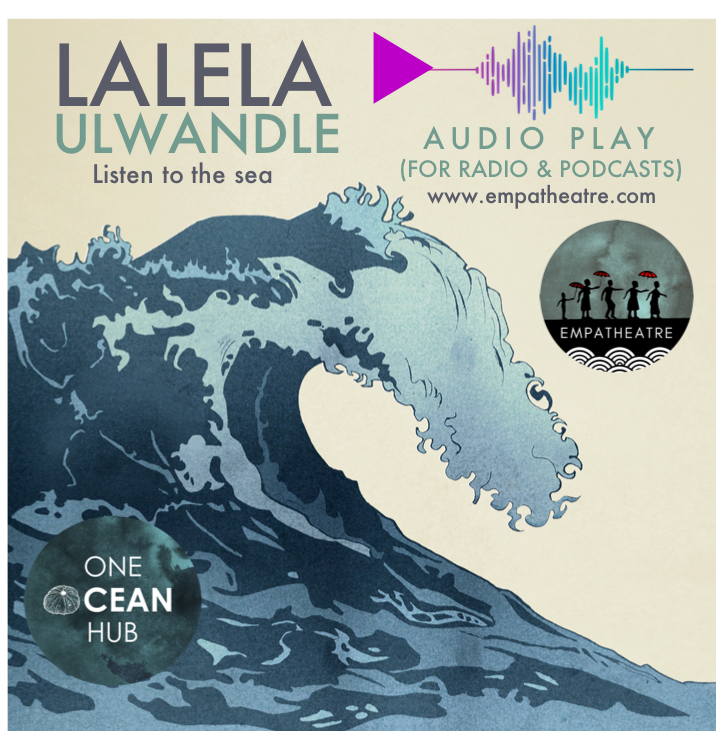
In March this year, the ELRC team at Rhodes University (Dylan, Taryn, Anna and Buhle) hosted a workshop for OOH researchers and other scholars and practitioners exploring the role of creative practice in supporting participatory research. The two-day dialogue and workshop surfaced some important lessons which we will soon be sharing in a blog and report from this event, as well as a paper led by Anna James, exploring critical dimensions of creativity in participatory (transgressive) research.
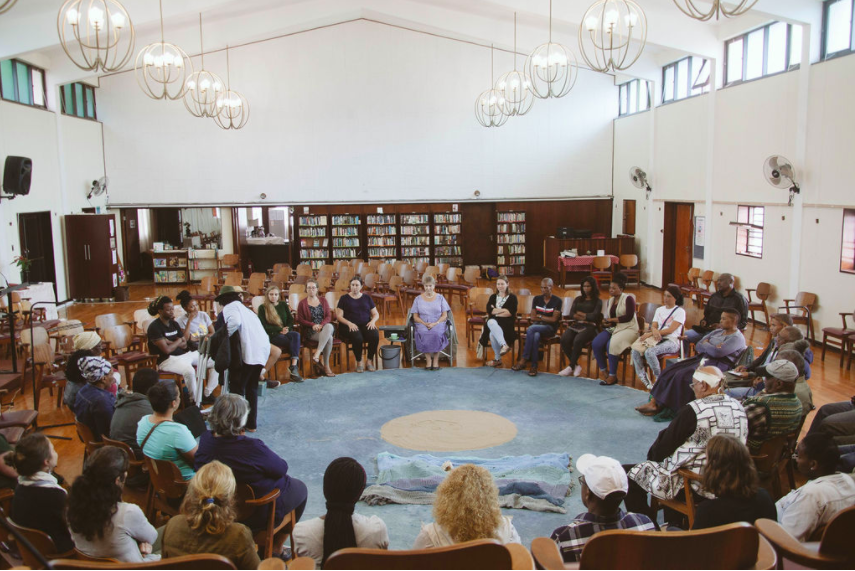
Finally, I will be sharing two collaborative papers, a methodology paper exploring the Empatheatre methodology as a ‘preliminary’ Empatheatre handbook, outlining it as a tool for meaningful participatory engagement in knowledge co-production in Ocean Decision making, as well as a second paper on transdisciplinary story-telling as a mechanism for social and critical ecological justice.
We are very excited by the ground-breaking collaborative work emerging from these teams. These are just some of the papers emerging from the Research programme exploring transformative ocean governance and the blue economy, and we can already see strong bridges being built with the fisheries work plans (RP3) and the Ocean policy/law research (RP1). These are extraordinary times, as we respond to both COVID19 and the ongoing struggle for building an anti-racist society has requirements of us all as researchers, to continue our reflexive dialogue and to place these global imperatives at the top of our research agendas.